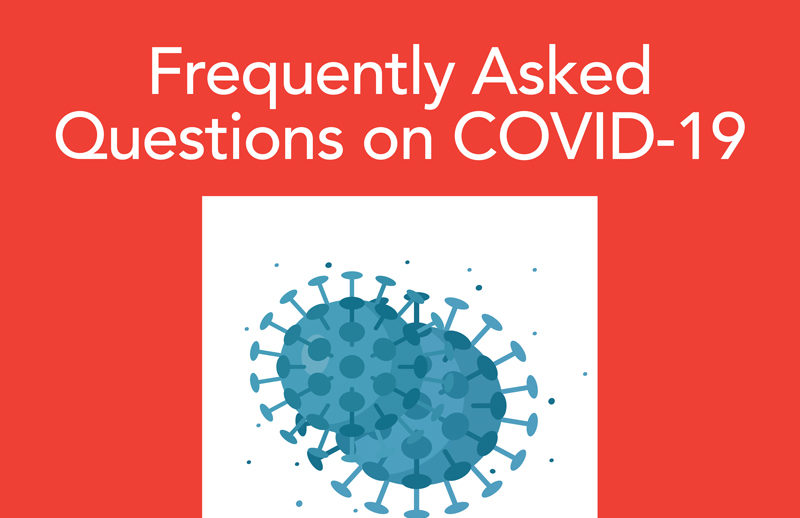COVID-19 is an emerging, rapidly evolving situation. York Hospital is working with public health partners at all levels and will continue to provide updated information as it becomes available.
Answers to Your Frequently Asked Questions
April 8, 2020
- What is York Hospital doing to prepare itself for the virus?
Our Covid Response Team consists of Emergency Care Providers, Infectious Disease Specialists, Primary Care Providers, Supply Management, our entire Leadership Team, and Nursing Directors who meet twice daily. We are prepared for all situations including increasing inpatient volumes. Tests are being administered in a negative pressure tent near the main entrance in order to minimize any exposure to other patients. Patients are being encouraged to call their provider if they’re not feeling well or believe they have COVID-related symptoms. All of our Provider Practice offices are available by phone, and in many cases for a telemedicine visit. Prescription delivery is available directly to homes and curbside. - What is the current capacity of beds, ventilators, PPEs, vs what is needed?
Like all organizations, we are working on our ability to maximize all beds and other parts of the organization in preparation for any patient surge we might experience. We are also working collaboratively with the Seacoast hospitals and State of Maine for maximizing resources. We have 36 inpatient beds, 5 intensive care unit beds, and 8 obstetrical care beds as well as the capacity for 9 ventilators. - What is York Hospital’s ability to test for Covid-19?
We have tests available for patients who have been recommended for screening by their provider. - How or when should a patient get tested? What’s the turn-around time?
If you’re sick and you think you’ve been exposed to the new coronavirus, the C.D.C. recommends that you call your healthcare provider and explain your symptoms and fears. They will decide if you need to be tested. Keep in mind that there’s a chance — because of a lack of testing kits or because you’re asymptomatic, for instance — you won’t be able to get tested. The turnaround time ranges from one to three days.
- What should a patient do if virus sickness is suspected?
Call your provider to discuss a plan of care. - Should regular PCP visits continue?
Many providers are seeing their patients using telemedicine, over the phone or occasionally in person. Please call your provider’s office and they will he happy to work with you and schedule an appointment that will accommodate you best. - Will York Hospital Transportation rides continue?
Yes. Our Care Access or Transportation team is available to schedule transportation to appointments. They can be reached at (207) 351-3413. - How does coronavirus spread?
It seems to spread very easily from person to person, especially in homes, hospitals and other confined spaces. The pathogen can be carried on tiny respiratory droplets that fall as they are coughed or sneezed out. It may also be transmitted when we touch a contaminated surface and then touch our face. - Is there a vaccine yet?
No. The first testing in humans of an experimental vaccine began in mid-March. Such rapid development of a potential vaccine is unprecedented, but even if it is proved safe and effective, it probably will not be available for 12 to 18 months. - What makes this outbreak so different?
Unlike the flu, there is no known treatment or vaccine, and little is known about this particular virus so far. It seems to be more lethal than the flu, but the numbers are still uncertain. And it hits the elderly and those with underlying conditions — not just those with respiratory diseases — particularly hard. - What should I do if I feel sick?
If you’ve been exposed to the coronavirus or think you have, and have a fever or symptoms like a cough or difficulty breathing, call a doctor. They will provide guidance on whether you should be tested, how to get tested, and how to seek medical treatment without potentially infecting or exposing others.
- What if somebody in my family gets sick?
If the family member doesn’t need hospitalization and can be cared for at home, you should help him or her with basic needs and monitor the symptoms, while also keeping as much distance as possible, according to guidelines issued by the C.D.C. If there’s space, the sick family member should stay in a separate room and use a separate bathroom. If masks are available, both the sick person and the caregiver should wear them when the caregiver enters the room. Make sure not to share any dishes or other household items and to regularly clean surfaces like counters, doorknobs, toilets and tables. Don’t forget to wash your hands frequently. - Should I stock up on groceries?
Plan two weeks of meals if possible. But people should not hoard food or supplies. Despite the empty shelves, the supply chain remains strong. And remember to wipe the handle of the grocery cart with a disinfecting wipe and wash your hands as soon as you get home. - Can I go to the park?
Most community parks and beaches in our areas are now closed so perhaps focus on getting outside for a walk or in your yard practicing social distancing. If you find a park that is open, make sure you keep six feet of distance between you and people who don’t live in your home. Getting some fresh air, and hopefully sunshine, is a good idea. - What can I do?
Stay home, wash your hands, telecommute, minimize information overload, reach out to a neighbor and practice self-care.


